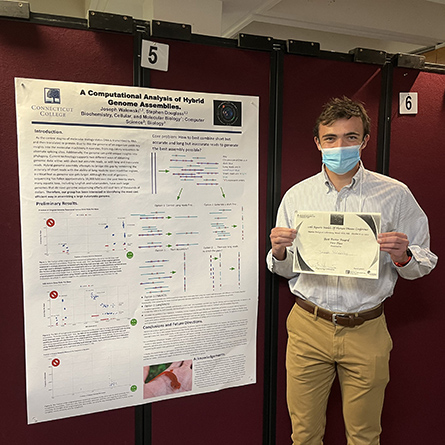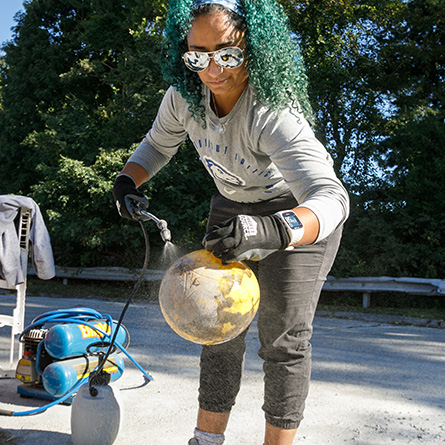
Full-fledged collaborators
Conn offers many opportunities for students to pursue their own research through Connections, independent studies, or the certificate programs. Additionally students are given the opportunity to work directly with faculty members on their research. Conn students are often cited as co-authors on papers, journal articles and book chapters. Many even travel with faculty to present their results at academic conferences. We’ll support your role as a researcher through grants from the College and outside sources.
A popular option is the myriad of summer research programs available to STEM and humanities students alike.
Research for humanities, arts and social science students
Research at Conn isn’t limited to the STEM fields. In fact, we offer a special stipend for work in the humanities, social sciences and arts through our ConnSSHARP program (Connecticut College Social Sciences, Humanities, Arts, Research Program.)
- You could study urban ethnoarchaeology with Associate Professor of Anthropology Anthony Graesch. One of his teams analyzed cigarette butts discarded outside bars in New London to reveal the social identity of each bar’s community of customers.
- You could work with faculty in dance, theater, music or psychology to present a contemporary perspective on a classic performance work, like the musical “Carousel.”
- You could join the Assistant Professor of Sociology Ana Lilia Campos Manzo research team, which is working on a multi-year, multifaceted research project to gain a better understanding of how youth see and navigate their worlds.
Research for science students
Most Conn science students engage in research, including projects supported by major federal and private foundation grants.
- You could work with Rachel Spicer, assistant professor of botany, who is in the midst of a three-year $395,064 National Science Foundation grant for research about tree growth that has practical applications for biofuel development and forest generation.
- You could study bioluminescence—the emission of light by living organisms—with Chemistry Professor Bruce Branchini. His bioluminescence research group is actively developing practical applications for non-toxic biodegradable bioluminescent materials for possible use by the U.S. military.
- Or you could work on the cutting edge of robotics technology with Computer Science Professor Gary Parker, an artificial intelligence specialist who has published 41 refereed papers with students in the last 10 years. He’s also taken students to present research at conferences in locations such as Japan, Australia, Spain, Scotland, Alaska and Hawaii.
Reach out to a department directly to see what students and faculty are working on and ask how you can get involved.
